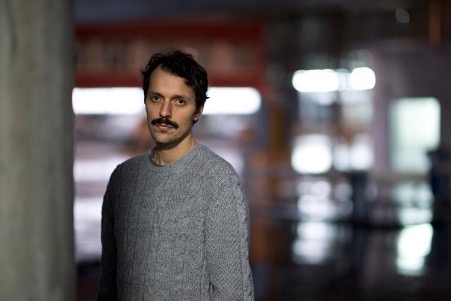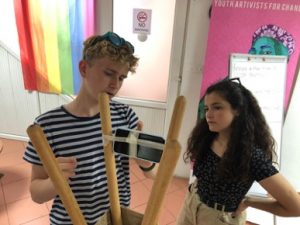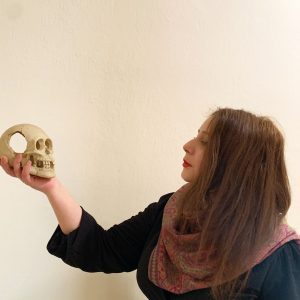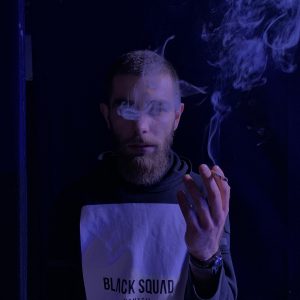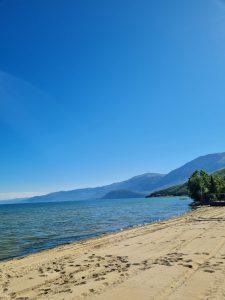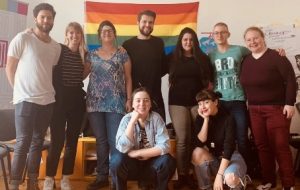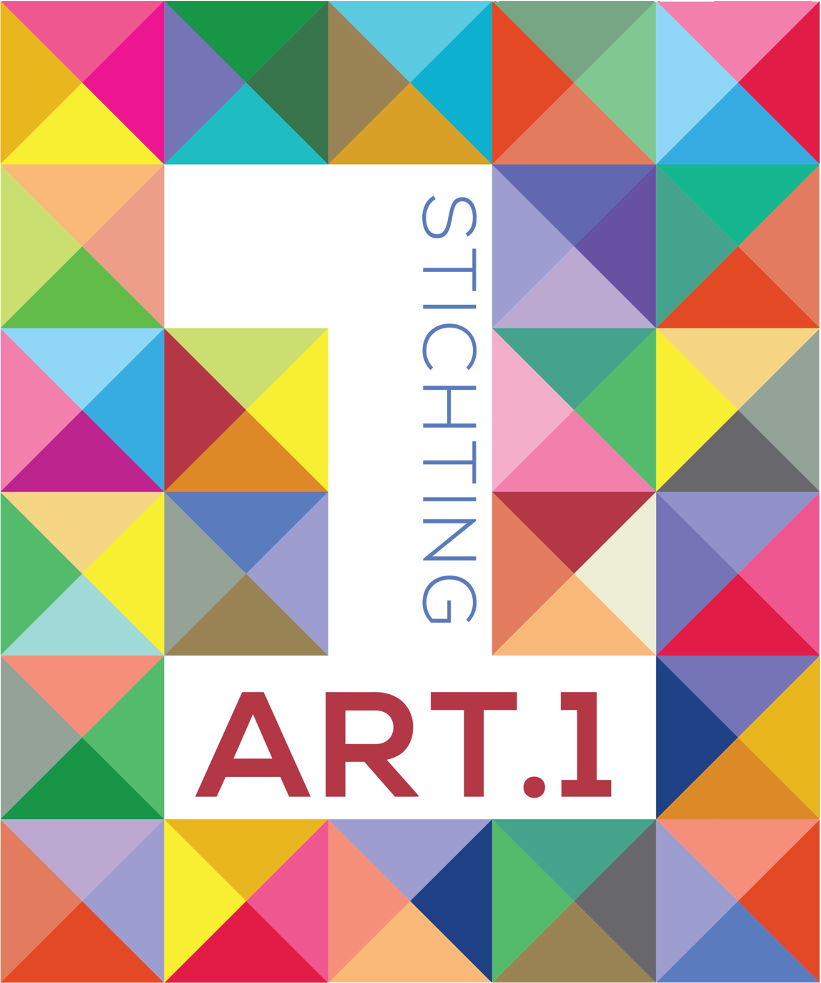Ilir Hasanaj fled from Kosovo to Switzerland at the age of 7. Years later he returned to his home country to make a film, and ended up launching the country’s first international film club. He’s currently in charge of screenings at an independent cinema in Pristina. Hasanaj is part of a wave of new filmmakers in Kosovo who are working towards a brighter future for the country through the arts. He’s the recipient of the Impact Your Doc funding scheme of the Youth Artivists for Change Project.
Art.1: Tell us more about your connection to cinema in this region and beyond?
Before I came here to Kosovo, I saw one big problem: The capital city, Pristina, had only one cinema (at that time). A city of 400,000 inhabitants had only one cinema – in a Western country, this would be unbelievable. So I returned with the mission of opening a cinema while finishing my film in parallel.
I set up a film club in Termokiss – a youth center in Pristina – and every week or second week, I showed a film. For me, and in order to build a culture around cinema, it was very important to show rare, special films that people hadn’t yet seen. Sometimes, after a screening, people would come up to me and say “Wow, I would have never seen this film if it wasn’t for you”. That made me extremely happy. I just felt that somebody had to do it, somebody had to change something in the surroundings. Finally, in 2018, the Kino Armata opened up and I started doing screenings and handling the film programming there.
It’s quite challenging to show films that are important to the people but aren’t classic Hollywood blockbusters. I would often show films from African countries or from Vietnam or other continents. This is especially important here, because most of the people have Kosovar passports; they cannot travel freely without applying for a visa. For me it proved that film could be a tool for travelling without moving. If they can’t go to these places, I felt like I could bring these places to them.
Art.1: You’ve just completed a rough cut of your film; can you tell us what it’s about?
It’s a documentary about certain people from the LGBTIQ+ community in Kosovo – a country that is very old fashioned, very traditional. Men are still expected to be the “man of the house”. The film addresses this side of Kosovo, as well as the other side: the LGBTIQ+ community.
The film is about identity, love. It’s about nature and being a part of the most natural thing: love between people of the same sex.
People here don’t want to tell anyone how they feel about their sexuality, and they don’t like people who don’t fit in a box.
Art.1: How did you find the subjects in your film given conservative attitudes towards LGBTIQ+ people in the region?
I think I can divide that in two parts. One of the producers (Dardan Hoti) made the first contact; to see what kind of people were out there and if they would be interested at all.
Where it became really difficult was that I didn’t want to do a film with blurred out faces or distorted voices. Therefore, the people in the film would need to agree to be seen and heard with their real faces and voices, which was the major problem.
We also went through some organizations. Another way was through friends of ours who are part of the community and sometimes also my girlfriend – who is a human rights lawyer, so it was quite a long process.
Art.1: How did you persuade people to speak openly about their private lives?
Making them feel good and comfortable was a big part of the heavy lifting. It’s a tough job for filmmakers, because some of the subjects had participated in TV interviews before. The TV stations had misused their trust or didn’t portray them well. I can totally understand why they would feel scared or not want to have the same experience again. One of the characters, he was very open about his sexuality [in a TV interview] and lost his job as a result. So, of course, these individuals have directly experienced the consequences of being portrayed in a certain way on a screen to a bigger audience.
